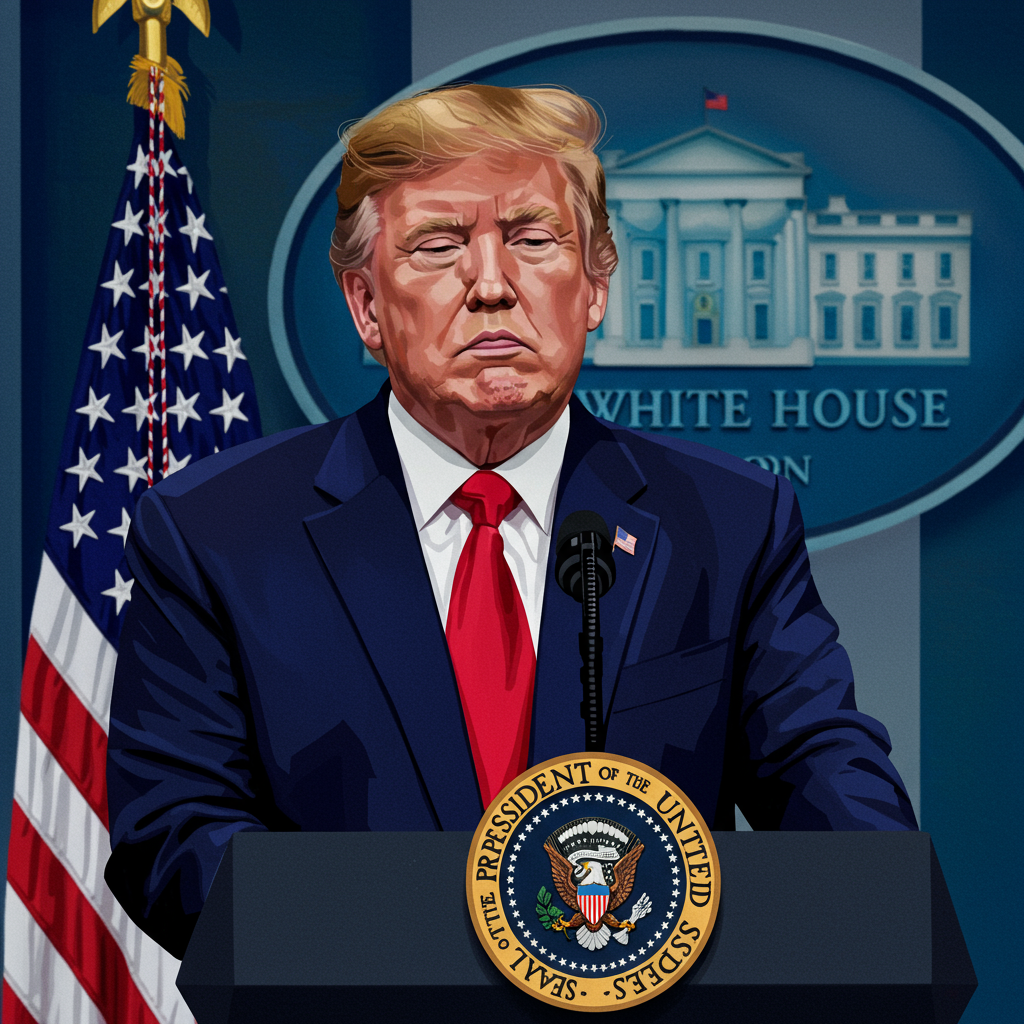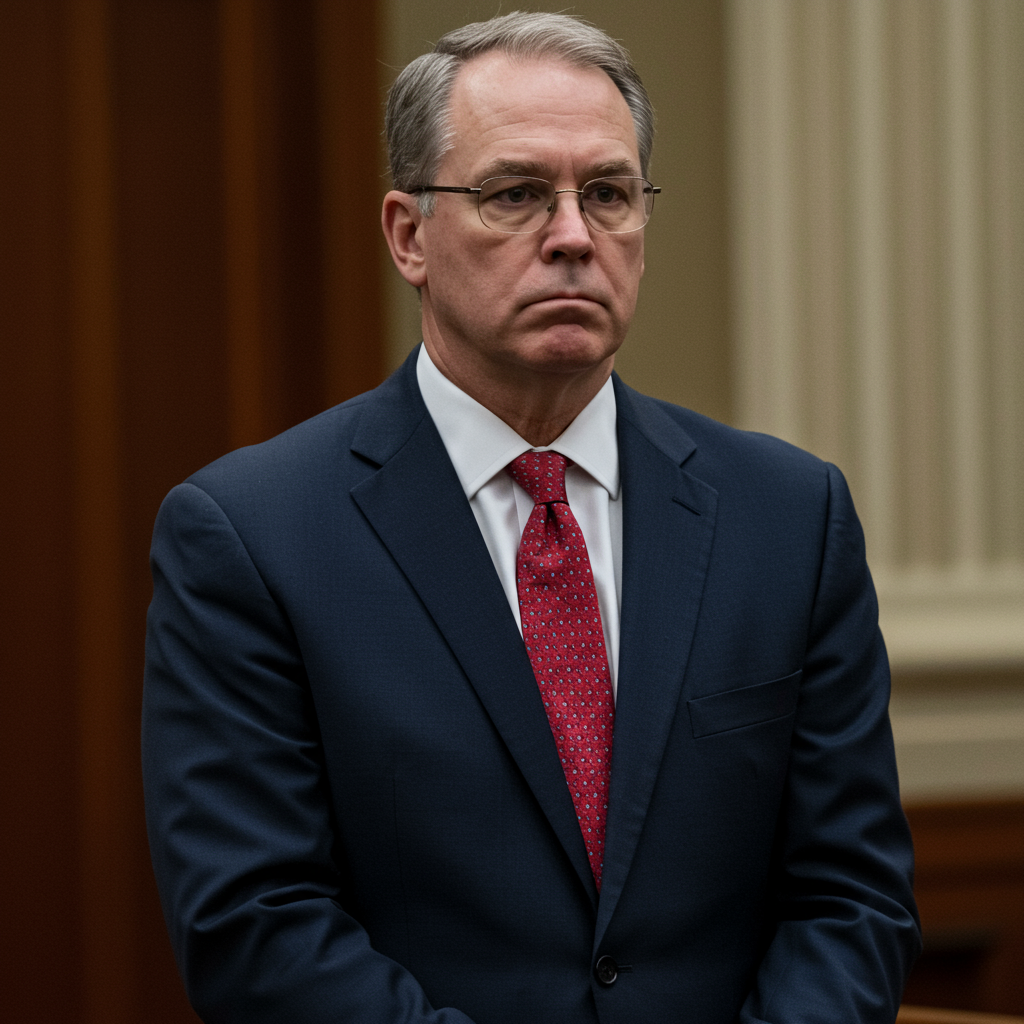As a crucial meeting between U.S. President Donald Trump and Russian President Vladimir Putin looms in Alaska, European nations have collectively solidified their stance: any lasting peace in Ukraine must be forged with Kyiv’s full and direct involvement. This unified European front aims to reinforce Ukraine’s sovereignty and territorial integrity, countering fears that a peace deal might sideline Ukrainian interests or pressure the nation into territorial concessions. The upcoming summit, intended to address the four-year-long conflict, represents a high-stakes moment for international diplomacy and the future of the war-torn region.
A Unified European Front: Kyiv’s Non-Negotiable Role
Leading European nations have spoken with one voice, issuing a powerful joint statement that underscores their unwavering support for Ukraine. The President of the European Union, alongside leaders from France, Germany, Italy, Poland, Finland, and the United Kingdom, collectively affirmed that the path to peace “cannot be decided without Ukraine.” Their declaration stressed the critical need for a “just and lasting peace” for Kyiv, explicitly coupled with “robust and credible” security guarantees. This unified message highlights Europe’s commitment to foundational international principles.
A core tenet of their declaration is Ukraine’s “freedom of choice over its own destiny.” European leaders assert that “meaningful negotiations can only take place in the context of a ceasefire or reduction of hostilities,” emphasizing a need for de-escalation before substantive talks. Crucially, they reinforced their dedication to the principle that “international borders must not be changed by force.” German Chancellor Friedrich Merz articulated Europe’s active preparation for the Alaska summit, expressing a strong hope and expectation that Ukrainian President Volodymyr Zelenskyy will also be invited to participate.
The Trump-Putin Summit: Hopes, Fears, and Russian Demands
The upcoming bilateral meeting between President Trump and President Putin, scheduled for next Friday in Alaska, marks a significant direct engagement between a U.S. leader and Putin since Russia’s full-scale invasion of Ukraine. While President Trump has publicly stated his intention to focus on ending the protracted conflict, his earlier suggestions regarding a peace deal potentially involving “some swapping of territories” have fueled considerable apprehension. These remarks ignited widespread fears that Kyiv might face pressure to cede land or accept limitations on its sovereignty as part of a settlement.
A White House official indicated that President Trump remains open to a trilateral summit that would include Ukrainian President Zelenskyy. However, for now, the immediate focus is on the bilateral meeting specifically requested by President Putin. This preference for a one-on-one format underscores Moscow’s strategic approach to negotiations. Russia’s long-standing demands for a peace deal are extensive: Ukraine must relinquish territory, abandon its bid to join NATO, and accept significant limitations on its military capabilities.
In return, Moscow suggests a withdrawal of Russian troops from other parts of the country. Particularly contentious is Russia’s insistence that Ukraine formally cede pockets of eastern and southern Ukraine that the Kremlin claims to have annexed, despite lacking full military control over these areas. Mark Galeotti, a British expert in Russian politics and head of Mayak Intelligence consultancy, observed that Russia’s tactic of encircling towns in eastern Ukraine has yielded considerable territorial gains. He noted that Putin “does not appear to feel under pressure” to concede, suggesting that for the Kremlin, “further delaying any more serious U.S. action and the optics of a meeting with the U.S. president will already be wins.”
Kyiv’s Unwavering Resolve and Diplomatic Push
Ukrainian President Volodymyr Zelenskyy has unequivocally rejected any notion of territorial concessions, maintaining a firm stance against ceding any part of Ukraine. He stated emphatically that Ukraine “will not give Russia any awards for what it has done,” and that “Ukrainians will not give their land to the occupier.” This public declaration serves as a cornerstone of Kyiv’s negotiating position. He expressed profound gratitude to European allies for their steadfast support, reiterating his conviction that “the end of the war must be fair” for Ukraine and its people.
While some Ukrainian officials had privately acknowledged the immense military difficulty of regaining all lost territories, President Zelenskyy’s public insistence firmly rules out formally ceding land. This position underscores the immense political risk and national sacrifice associated with such a decision. Galeotti highlighted that any deal involving Ukraine abandoning territory would be “agonizing” and politically dangerous for Zelenskyy, potentially undermining his leadership and public trust. Amid these complex diplomatic currents, Andriy Yermak, a top aide to President Zelenskyy, confirmed that Kyiv plans an “important week of diplomacy” to strategically bolster its position ahead of the pivotal Trump-Putin meeting. This concerted effort demonstrates Ukraine’s determination to shape its own future despite external pressures.
International Pressure and Strategic Considerations
Despite a month-long U.S.-led diplomatic push to achieve a truce in Ukraine, progress has been largely elusive. While Kyiv has generally agreed in principle to a ceasefire, the Kremlin has consistently held out for terms more favorable to its strategic objectives. This persistent divergence highlights the profound challenges in bridging the gap between the warring parties’ conditions for peace. President Trump had previously issued an ultimatum, threatening to impose additional sanctions on Russia and secondary tariffs on countries purchasing Russian oil if Moscow failed to move towards a settlement by a specified deadline, which has now passed.
U.S. Vice President JD Vance also engaged in separate discussions with top European and Ukrainian officials at the British Foreign Secretary’s residence. These meetings focused on exploring viable pathways to end the conflict, signaling a broad and coordinated diplomatic effort. U.S. Senator Lindsey Graham, a known Trump ally and Russia hawk, acknowledged the fundamental necessity of dialogue to resolve the war, asserting that “you can’t end a war without talking.” He expressed confidence that President Trump would approach the meeting with Putin from a position of strength, prioritizing both European and Ukrainian needs for an honorable conclusion to the conflict. Graham further suggested that while Ukraine might not realistically “evict every Russian” soldier, the West should provide Kyiv with robust security guarantees, maintain a deterrent presence of forces “as trip wires,” and continue arming Ukraine to foster “the most lethal army on the continent of Europe.”
German Chancellor Friedrich Merz, advocating for tougher sanctions against Russia, stated his belief that “Putin only acts under pressure,” a sentiment echoed by Mikhail Kasyanov, Putin’s first prime minister and now a political opponent, who suggested that the Kremlin would only negotiate seriously under increased economic strain. NATO Secretary General Mark Rutte commended Washington’s recent actions, including allowing more military equipment to flow to Ukraine and imposing secondary sanctions on countries like India for purchasing Russian oil. Rutte interpreted these steps as clear indications that Trump “clearly is putting pressure on Putin,” framing the upcoming meeting as an opportunity to “test Putin — how serious he is — on bringing this terrible war to an end.”
The Path Forward: Uncertainties and Key Stakes
The looming Trump-Putin summit is undeniably pivotal, yet the significant disparity in peace conditions between Moscow and Kyiv means there are no guarantees it will immediately halt the fighting. The high stakes involve not only the cessation of hostilities but also the fundamental principles of national sovereignty and international law. The diplomatic efforts surrounding this summit illustrate the complex web of alliances, pressures, and conflicting demands that characterize the ongoing conflict. Europe’s firm backing of Kyiv, coupled with the strategic maneuvers of the U.S. and Russia, sets the stage for a period of intense negotiation.
The outcome will heavily influence the geopolitical landscape for years to come, determining the extent of Ukraine’s territorial integrity and its future alignment. For President Zelenskyy, maintaining public support for his non-concession stance while navigating international pressures will be a delicate balancing act. For Russia, the summit offers an opportunity to gain legitimacy and potentially ease sanctions, even as it seeks to solidify its territorial gains. The international community watches closely, hoping for a breakthrough that leads to a just and lasting peace, but aware of the deep-seated disagreements that persist.
Frequently Asked Questions
What are the key demands from European leaders for peace in Ukraine?
European leaders collectively demand a “just and lasting peace” for Ukraine, ensuring “robust and credible” security guarantees. Their core principles emphasize Ukraine’s “freedom of choice over its own destiny” and insist that “international borders must not be changed by force.” They firmly state that “meaningful negotiations can only take place in the context of a ceasefire or reduction of hostilities” and that any path to peace “cannot be decided without Ukraine.” This united front underscores their commitment to Ukraine’s sovereignty and self-determination.
Why is the upcoming Trump-Putin meeting significant for Ukraine?
The Trump-Putin meeting is highly significant because it represents a direct, high-level discussion between two major global powers regarding the four-year-long Russia-Ukraine war. While U.S. President Trump aims to focus on ending the conflict, his earlier suggestions of “some swapping of territories” have raised concerns in Kyiv and Europe about potential pressure on Ukraine to cede land. The meeting could establish new diplomatic pathways, but its bilateral nature (as requested by Putin) also sparks fears of Ukraine’s interests being sidelined, making the outcome critical for Kyiv’s future.
How are international sanctions impacting Russia’s willingness to negotiate?
International sanctions are seen by many European leaders and former Russian officials as a crucial tool to pressure the Kremlin into serious negotiations. German Chancellor Friedrich Merz and former Russian Prime Minister Mikhail Kasyanov both argue that “Putin only acts under pressure” and that increased economic strain from sanctions would make Russia more willing to make concessions. NATO Secretary General Mark Rutte has praised Washington’s actions, including imposing secondary sanctions on countries buying Russian oil, as clear indications of applying pressure on Putin. The effectiveness of these sanctions in shifting Russia’s negotiating stance remains a key test.



